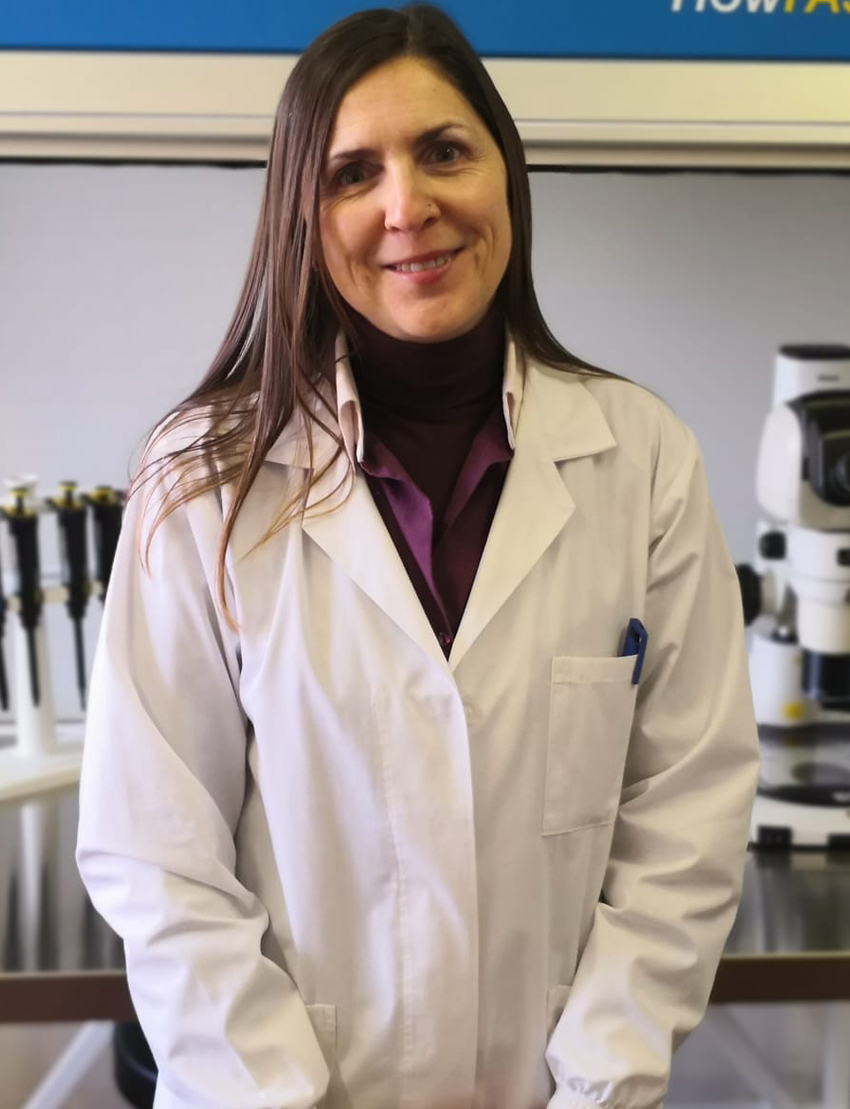Serena Carra, 2022

AHA MCA Project Title
“SUMO2/3 as a solubility tag to prevent the misfolding and aggregation of key RNA-binding proteins associated with amyotrophic lateral sclerosis (ALS) and Frontotemporal dementia (FTD)”, 2022
Who she is
In 1998, Serena Carra obtained her master degree in Pharmaceutical and Chemical Sciences (summa cum laude) at the University of Modena, Italy.
From 2000-2004, she was assigned a PhD scholarship by the European Commission-Structural Funds and Ministero dell’Università e della Ricerca Scientifica e Tecnologica.
In 2004, she obtained her PhD degree in Neurobiology. After completing her PhD, Dr. Carra worked as post-doc in the lab of Prof. Jacques Landry (Québec, Canada), where she discovered the HSPB8-BAG3-HSP70 chaperone complex and its role in targeting misfolded and mutated proteins to autophagy for clearance.
In 2007, Dr. Carra was appointed Senior Scientist in Prof. Harm H. Kampinga lab (University Medical Centre Groningen, UMCG, The Netherlands), further specializing her research on protein quality control.
Two years later, Dr. Carra was promoted Assistant Professor at UMCG. In 2011, Dr. Carra was awarded the Rita Levi Montalcini Prize (Rientro dei cervelli program, 2009) and she moved to the University of Modena and Reggio Emilia, Italy, where she established her own independent lab and she is affiliated as Associate Professor of Molecular Biology.
Who she does
Prof. Carra dedicates her research to understand the role of chaperones in the maintenance of protein homeostasis and their implication in rare neurodegenerative and neuromuscular diseases.
Recent evidence is emerging for a strong link between phase-separating proteins, biomolecular condensates, protein quality control failure and age-related diseases.
Data from the Carra lab highlight an intricate connection between compartment dynamics and protein misfolding, including mishandling of defective ribosomal products (DRiPs) and lend support to the idea that aberrant changes in the dynamics of condensates can drive cell dysfunction and disease.
News from the Lab
The main focus of Prof. Carra research is to elucidate the role of molecular chaperones in regulating the properties and functions of biomolecular condensates. Understanding how cells maintain condensate dynamics and combat protein aggregation will be fundamental to design new therapeutic approaches for the treatment of age-related neurodegenerative and neuromuscular diseases. She is recently focusing on the role of specific post translational modifications to maintain protein solubility under stressful and pathological conditions.
In addition, she is unraveling unexpected functions of chaperones, whose mutations are causative for neuromuscular diseases, in the maintenance and regeneration of the neuromuscular system.
She is particularly interested in understanding to what extent pathogenesis is linked to protein quality control failure and aberrant phase transitions.


